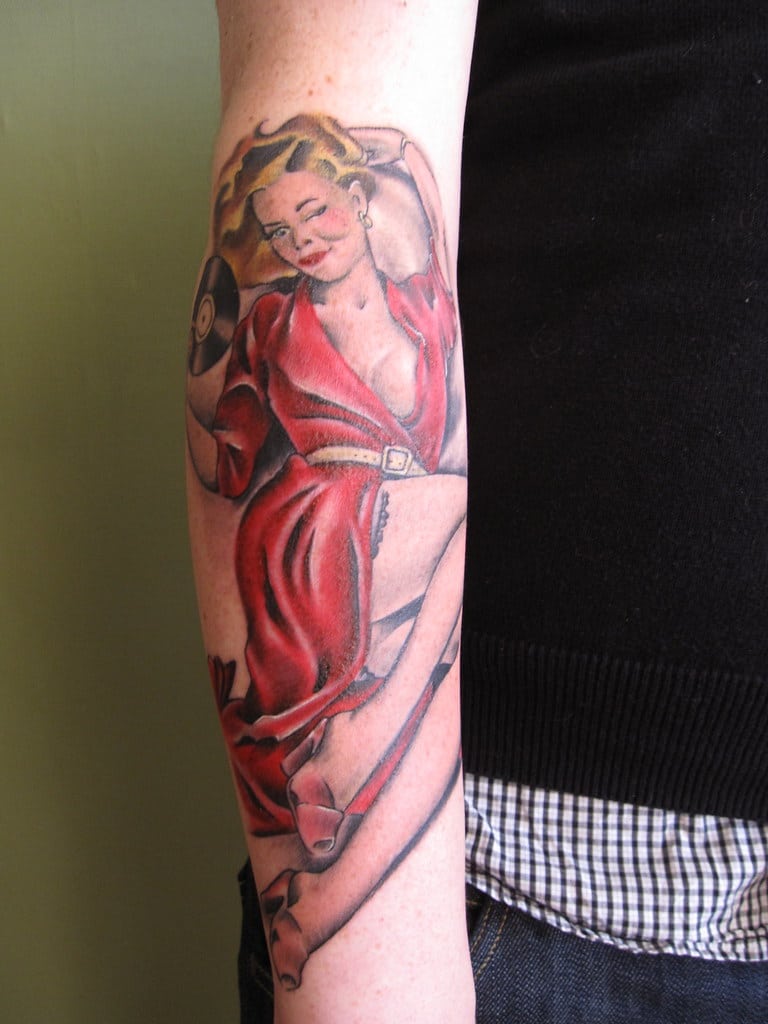The singer/rapper known as Cardi B has been embroiled over the last three years in a copyright lawsuit involving tattoos. In particular, tattoo artist, Kevin Brophy, claims that the design of his back tattoo was appropriated and used without his permission on a male figure on the cover art of Cardi B’s music compilation called Gangsta Bitch Music, Vol. 1. The case is scheduled to go to trial in mid-October 2020. See news report here.
Copyright law and tattoo art have created a complex legal conundrum. Matters are made worse by the fact that courts have been slow in resolving the legal issues. On the one hand, several courts have held that tattoo designs are able to be copyrighted. The Copyright Act allows for the registration of copyrights with respect to any “original work of authorship” that is “fixed in any tangible medium of expression.” See 17 USC § 101 et seq. Clearly, tattoos meet this definition. Indeed, the Copyright Office takes the position that tattoos are copyrightable and has routinely issued Copyright registration certificates for tattoo designs.
On the other hand, persons who wear tattoos created by tattooists have an intrinsic right to freedom of movement and freedom of expression. They cannot be expected to pay copyright royalties every time that they go outside nor can they be expected to keep their tattoos covered up.
Courts have partially resolved this conflict by holding that tattoo artists provide an implied copyright license to their patrons when they provide the ink. This is based on the obvious fact that tattoo artists know that persons wearing their art will be appearing in public places and in photos where the tattoos will be visible. In general, implied copyright licenses are deemed to exist where a court finds that the person creating a work at another’s request provides the work intending and/or expecting and/or having reason to believe that the other will display, copy, and distribute it. This is certainly true with respect to most tattoos. The artist provides the tattoo and certainly expects — or has reason to believe — that the person wearing the tattoo will display, copy and distribute the tattoo through public appearances, social media, and photographs.
Indeed, this was the legal holding of Solid Oak Sketches, LLC v. 2K Games, Inc., Case No. 16-CV-724-LTS-SDA (US S.D.N.Y. March 26, 2020). That case involved tattoos on various sports personalities and use of their likenesses (with the tattoos) in video games. The court agreed that the tattoos at issue were copyrightable. However, the court held that the tattoo artists had provided implied copyright licenses for the players, even when their likenesses were used in video games. The artists knew that they were providing tattoos for sports figures who would be appearing on television and engaged in personal and social media appearances. As such, the artists knew that their tattoo art would be on full display and would be copied, reproduced and distributed. Based on this, the court held that “… the Players, who were neither requested nor agreed to limit the display or depiction of the images tattooed onto their bodies, had implied licenses to use the Tattoos as elements of their likenesses.” The court further held that the implied licenses could be transferred to the video game companies.
The Cardi B case presents a different sort of question and it will be interesting to see how the case is resolved. In the Cardi B case, Mr. Brophy, the tattoo artist, did not ink the design onto the individual in question. Rather, the individual is alleged to have obtained a tattoo very similar to a design copyrighted by Brophy, and an image of that tattoo was used publicly and distributed widely. These factual differences suggest that Brophy’s tattoo copyright infringement claim is stronger than the legal claims in other cases.
For more information and/or if you have questions about protecting your copyrights and other intellectual property, contact the copyright lawyers at Revision Legal at 231-714-0100.




